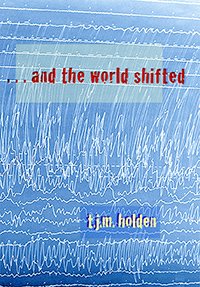… and the world shifted
Japan. March 11, 2011 . . .
The day the fourth-largest earthquake in recorded history
sent a 130 foot tsunami
crashing along 700 kilometers of coastline —
leaving thousands dead
and hundreds of thousands displaced.
In its wake, a stunned nation struggled to make sense of a world suddenly in pieces.
And a multitude were sent scrambling to simply survive.
Glynnis McKinney, a rookie reporter for a Canadian newspaper, is traveling from Tokyo to Sendai with her iconoclast interpreter, Yuta Takahashi. An incongruous pair. Glynnis is: foreign, female, ambitious, cerebral and insecure; Yuta is: a native, male, opinionated, emotional and cynical. Both, though, share common ground. Sensitive, naïve, haunted, brittle, incomplete; both thirst for respect; each driven to decipher the meaning of contemporary existence.
Stumbling through the devastated Tohoku region by car, the pair forge an improbable bond—the result of shared personal demons and the need to make sense of a world that has collapsed around them. Recording the testimony of victims, rescuers, refugees, doctors, aid workers, civil authorities, soldiers, police and criminals, their trek culminates in two dramatic engagements: an anxious visit to the crippled nuclear power plant, where the translator's father toils as one of "the Fukushima Fifty"—the men who heroically sacrificed their well-being to save the nation from nuclear meltdown; and an interview evaded by a nijū hibakusha—a double atomic bomb survivor from World War II—trapped in a refugee shelter and musing on his nation's tumultuous modern history, viewed through the prism of his remarkable life.
Panoramic, yet intimate, unique, yet universal, . . . and the world shifted is a tale of fellowship, discovery and transformation. It reminds readers that regardless of nationality, age, gender or belief, we are all part of a larger community, which persists—past into present into future, no matter what snares life plants along our path.




